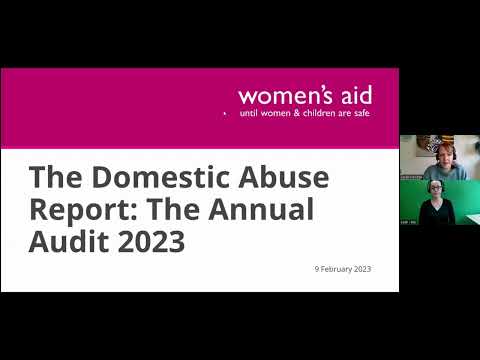
Welcome to this informative article on the litigation of domestic abuse cases in the UK. It is important to note that while this article aims to provide a comprehensive overview of the subject, it should not be considered as legal advice. For specific legal guidance, please consult with qualified legal professionals or reference other reliable sources.
Now, let’s delve into the topic of litigation in domestic abuse cases in the UK. Domestic abuse is a grave issue that affects individuals and families across the globe. In the United Kingdom, the legal system has made significant strides in addressing this problem and providing recourse for victims.
Litigation in domestic abuse cases involves legal proceedings to seek justice and protection for victims of abuse. These cases typically involve allegations of physical, emotional, or financial harm inflicted by a family member or someone with whom the victim has or had an intimate relationship. It is crucial to understand that domestic abuse can affect anyone, regardless of age, gender, sexual orientation, or social status.
📋 Content in this article
When a victim decides to pursue litigation, they can seek various legal remedies depending on their situation and needs. Some common legal options include obtaining non-molestation orders (restraining orders) to protect against further abuse, occupation orders to establish or regain possession of a shared home, and prohibited steps orders to prevent a perpetrator from taking certain actions concerning children.
To initiate litigation, victims can approach their local Family Court or seek assistance from organizations specializing in supporting survivors of domestic abuse. It is crucial for victims to gather relevant evidence, such as medical records, photographs, witness statements, or any documentation that may substantiate their claims. This evidence will be essential in establishing the facts of the case and supporting their request for legal remedies.
During litigation, victims may be required to attend court hearings where they present their case before a judge.
Understanding the Legal Process for Domestic Abuse Cases in the UK
Exploring the Litigation of Domestic Abuse Cases in the UK
Domestic abuse is a serious issue that affects many individuals and families in the UK. It is crucial to understand the legal process involved in handling domestic abuse cases, as it can often be complex and overwhelming. This article aims to provide an overview of the litigation process for domestic abuse cases in the UK, highlighting key points and steps along the way.
1. Reporting the Abuse
2. Obtaining a Protective Order
3. Seeking Legal Advice
4. Gathering Evidence
5
Understanding the Statute of Limitations on Domestic Abuse in the UK: A Comprehensive Overview
Understanding the Statute of Limitations on Domestic Abuse in the UK: A Comprehensive Overview
In this article, we will delve into the concept of the statute of limitations on domestic abuse in the UK. It is important to understand this legal concept in order to navigate the litigation of domestic abuse cases effectively. Let’s explore this topic in detail.
What is the Statute of Limitations?
The statute of limitations refers to the time limit within which legal proceedings must be initiated for a particular offense. In other words, it sets a deadline for bringing a case to court. Once this deadline has passed, the claimant may be barred from pursuing legal action.
The Statute of Limitations on Domestic Abuse Cases
In the context of domestic abuse cases, it is crucial to be aware of the applicable statute of limitations. In the UK, there is no specific statute of limitations for domestic abuse offenses. Instead, domestic abuse cases are generally subject to the same time limits as other criminal offenses.
Statutory Time Limits for Criminal Offenses
For most criminal offenses, including domestic abuse, there are different time limits depending on the seriousness of the offense. It is important to note that these time limits can vary depending on the jurisdiction within the UK. Here are some general statutory time limits:
Extensions to the Statute of Limitations
It
Exploring the Litigation of Domestic Abuse Cases in the UK: The Importance of Staying Current
It is crucial for professionals and stakeholders involved in the legal system to stay current on the topic of domestic abuse litigation in the UK. Domestic abuse cases involve complex legal issues and require a comprehensive understanding of the relevant laws, procedures, and evolving legal precedents. This article aims to emphasize the significance of staying up to date with this subject matter for those involved in the legal field, while also reminding readers to verify and cross-reference the content presented here.
1. Understanding Domestic Abuse Laws: Domestic abuse laws in the UK encompass a range of behaviors, including physical violence, emotional abuse, sexual assault, harassment, and coercive control. These laws are not static; they have evolved over time to provide greater protection for victims and hold perpetrators accountable. Staying current on changes to domestic abuse laws is essential for legal professionals to effectively represent their clients and ensure justice is served.
2. Legal Procedures and Guidelines: Litigating domestic abuse cases involves navigating specific legal procedures and guidelines. Familiarity with these procedures is vital to effectively represent clients and ensure that their rights are protected. Staying current on procedural changes, court guidelines, and best practices is crucial for legal professionals to provide the highest level of representation.
3. Case Precedents: Case law plays a significant role in domestic abuse litigation, as it helps shape and interpret the application of laws in specific circumstances. Staying current on recent case precedents allows legal professionals to understand how courts are interpreting domestic abuse laws and can help inform their litigation strategies. It is important to regularly review and analyze recent judgments to stay informed about developments in this area of law.
4. Interdisciplinary Approaches: Domestic abuse cases often require collaboration with professionals from various disciplines, such as social workers, psychologists, and healthcare providers.
